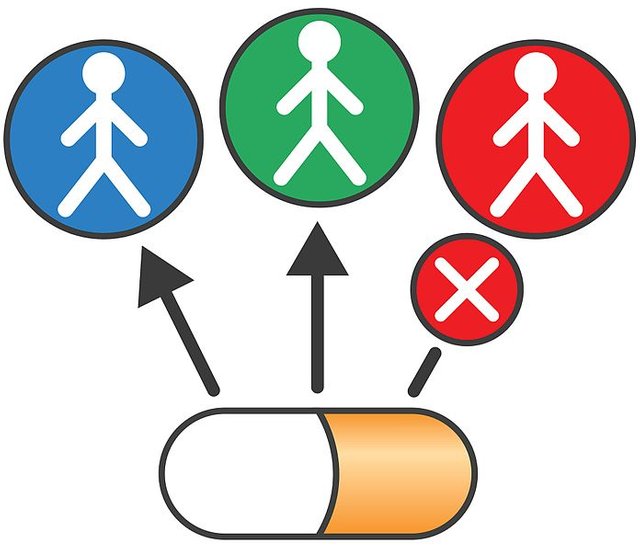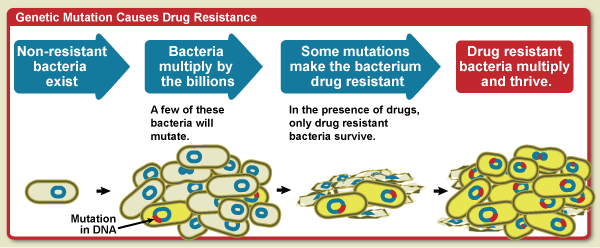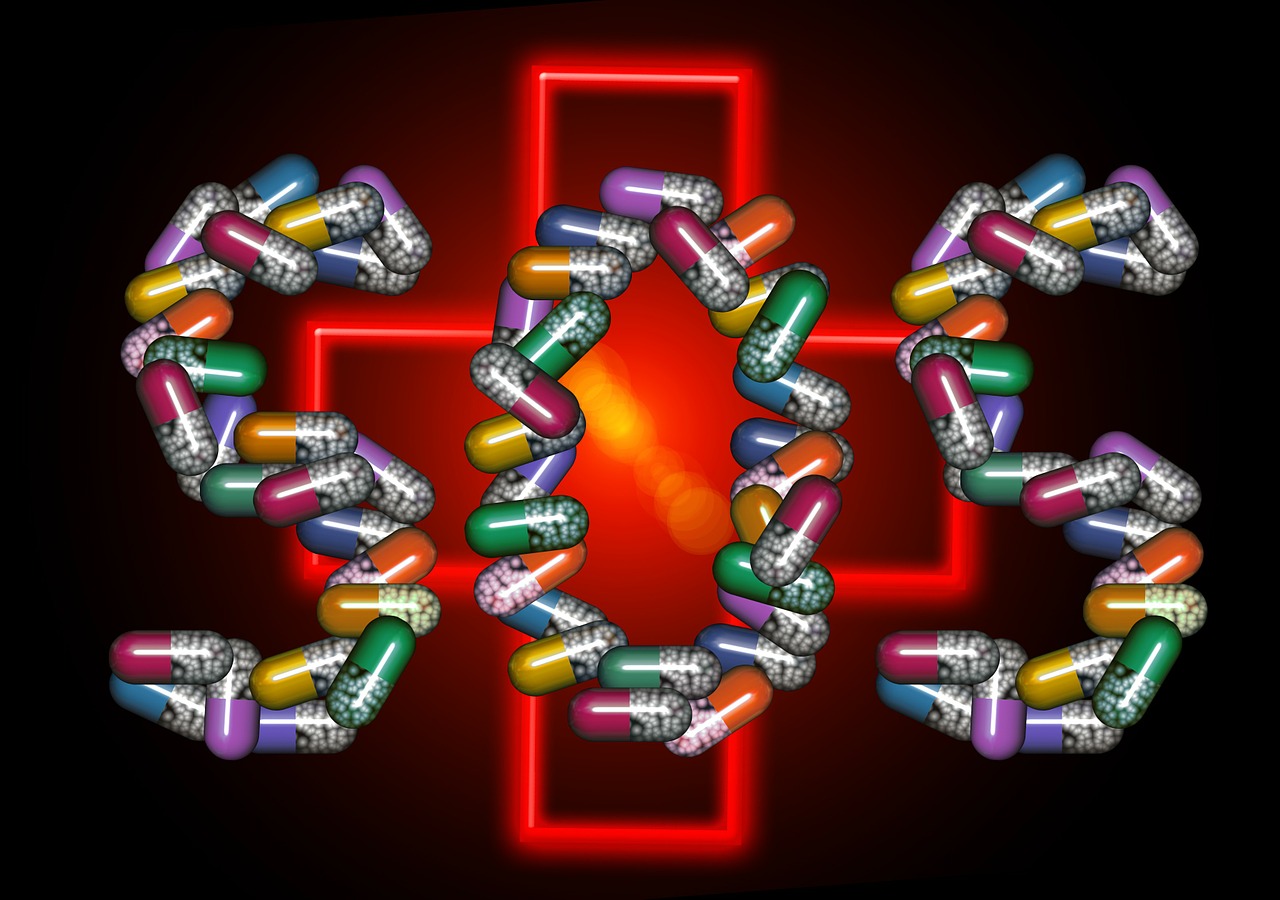Personalized Medicine : The Tailor Style Approach To Health Care Treatment
Arsenal are in the semi-finals of the Europa league, Yay! My beloved team has been doing well for the past couple of weeks. I wish I could say same about myself. I know the earth spins, and we don't feel the effects, I don't know why though. Life has been coming at me thick and fast. The other day, I rewatched Robot and Frank, in which Frank had a robot for a friend, a servant, a crime partner (he taught the robot how to crack safes so they could steal jewelry) and also a doctor.
Although the movie was set in the near future, I wondered if it will ever be possible that we have robot doctors. Hours of searching the web for answers I stumbled upon personalized medicine which I thought was building a hospital for yourself.
You can walk into any store to get clothes, there's X, XL, XXL and so on you will definitely fall in one of the listed categories. Now imagine going to another store to get clothes but here they manufacture to your size, so they take measurements of your height, weight, waist, chest and so on. In the end, you get the cloth that perfect for you. This is personalized medicine, except here it's about drugs and treatments rather than clothes.

Our DNA contains over 20,000 genes, which are all stored in our cells’ nuclei. A gene is like a strand of chemical code, a type of blueprint for proteins and other substances necessary for life. Genetic blueprints are used by cells to make those molecules.
The overall blueprint for each person is the same, entirely made up of around 3 billion letters of code, each letter representing a chemical subunit of DNA molecule. Human individual identity is brought about by a 1% variance in our DNA, i.e., what makes me different from you is just a single different chemical letter I have and vice versa.
Aside from physical appearance, genes are responsible for the unique chemistries in various parts of our brain and body. These differences often predispose people to specific diseases and influences the way we will respond to medical treatments.
Often, doctors diagnose and treat us based on those distinct individual differences, a concept popularly called “personalized medicine.” Mainly, personalized medicine involves the fusion of genetic information and clinical data to prescribe drugs and doses that meet the unique needs of individual patients. Personalized medicine is better when equipped with the knowledge of the body's distinct arsenal of proteins and complete brochure of biochemical reactions.
Lawrence Lesko of the U. S. Food and Drug Administration, explains that
personalized medicine is the comprehensive, prospective approach to preventing, diagnosing, treating, and monitoring disease in ways that achieve optimal individual health-care decisions.
Aspects of personalized medicine approach are already in place for some diseases. For instance, a different sequence of a gene linked to breast cancer can predict a woman's probability of developing or overcoming the illness. In some cases of breast cancer, the synthesis of a specific protein shows a more dominant form of the disease that might be effectively curbed with the drug Herceptin.
The worldwide implementation of personalized medicine faces various challenges which will be addressed by the joint effort of researchers from lots of disciplines, ranging from geneticists to clinical specialists to engineers.
Obstacles facing personalized medicine creation.
Developing systems to swiftly assess a patient's genetic profile is one of engineering’s biggest challenge, another is how to effectively collect and manage large amounts of data on each patient. Creating cheap and swift diagnostic devices such as chips and sensors that can accurately tell the number of chemicals in the blood is another obstacle that needs to be overcome.
Furthermore, better systems are required to discover efficient and safe drugs that can take advantage of the new ideas of differences in individuals. The best way for testing a drug’s worth and safety is the RCCT (randomized controlled clinical trial) which randomly assign new drugs or none (a placebo) to people to find out how the drug performs. However, this approach only makes a decision about the usefulness of a drug based on the average results of the group of patients rather than of an individual.
Ways of delivering personalized drugs to the area of the body where the disease is based is currently a work in progress. An example is how researchers are looking for ways to manufacture nanoparticles that will be able to deliver a drug to its target in the body while eluding the body's immune response. This types of nanoparticles could be designed to be sensitive to the body's inner conditions. For example, the nanoparticles will be required to release insulin only when it senses the blood glucose concentration is high.
There is a new field called “synthetic biology,” in which biomaterials are being engineered to substitute or assist in the repair of damaged or worn out body tissues. They contain biological signals that guide the growth of stem cells into specific tissue types of our choice. If this new field(synthetic tissue engineering) can be mastered the possibility of regenerating tissues and organs won't be far fetched.
Benefits of Personalized Medicine
You must be curious as to what effect personalization of medicine will be, I must say the possibilities should be limitless ranging from revealing diseases and even the risk of disease much earlier, with treatment done more successfully rather or prevented entirely. It has the potential to reduce medical costs by pointing out cases where high-cost treatment are unnecessary and unsuccessful. Trial and error treatments will reduce, and it will make sure that the right dosage of medicine is applied sooner. The bigger picture of personalized medicine is providing the path to cure cancer by showing why some people have cancer and others don't, or how some people with cancer die when others survive.
However, moving to personalized medicine will not be without some social and ethical issues. Technical issues aside, there are problems of privacy when handling a person's unique biological profile. Also, how Third World countries like the one I live in will be able to have access to its benefits.

Treating drug-resistant diseases
The campaign against infectious agents has brought about a potent arsenal of therapeutics, but sometimes treatment with drugs only worsen the problem. By eliminating all except the drug-resistant strains, infectious agents that are prone to avoiding drugs attack become the controlling variety in the microbe population which is one typical example of natural selection in action.
This supports that notion we have always had that drugs can be ineffective when the microbial employs the survival of the fittest model of evolution. And although the frequent usage of drugs contributes to their demise, they learn over time how to survive against the drug thereby strengthening their resistance.
David Hermann of the world health organization, noted that " drug-resistant pathogens be it bacteria, viruses or parasites can no longer be effectively treated with common anti-infective drugs." Where conventional medicine has failed us,guess what will not,i bet you guessed right personalized medicine will not. In a world of irritating Monday morning, personalized medicine will be the warmth of a Friday afternoon.
The health of the world's population will depend on coming up of new ways to overcome multiple drug resistance.
Significant challenges in this endeavor are understanding better how drug resistance comes about it, how it spreads and also how it evolves. Again, the system for discovering and manufacturing new drugs must change and unfold new approaches on waging war on pathogens.
Drug resistance is actually not uncommon. The most basic and useful approach to this problem is to double down on the search for new antibiotics. Most drugs used in fighting disease-producing microbes are chemicals found to occur naturally in soil bacteria. A source which may as well provide other promising candidates (drug) that may be found in plants that grow in a harsh environment.
Where I come from, there are drinks called agbo (herbal drinks) they are made by boiling roots and leaves of plants. Different leaves for different diseases and it is so effective some people only take this agbo rather than drugs. This indicates that plants offers compounds with anti-bacterial properties which chemical engineers can work on to produce drugs capable of breaking this resistance.
Do we all know the story of the frog and the boiling water? When you put a frog in a boiling water it jumps out, but put in a warm water the frog is relaxed and stays in. Now you apply heat to the water and the water boils the frog to death. Same approach can be take while tackling drug resistance, prescriptions can be given such that it combines two drugs, one antibiotics and the other a drug that has marginal antibiotics effect and also has the ability to disarm a bacterial defense mechanism.
Engineering input in personalized medicine
As I have said earlier, for personalized medicine to become a reality, scientists from different fields will have to work together. Engineering will help by producing better tools and techniques for quick analysis of drugs so that they can be screened rapidly and effectively. Most drugs in circulation are prescribed wrongly or unnecessarily which aids drug resistance.
Correct and faster diagnoses may lead to more effective therapies. Lots of bacteria have been treated with the same antibiotics because doctors don't know for sure which bacterium causes what infection. Having equipment that can precisely tell what bacterium is responsible for a specific disease will reduce the chance of resistance and increase the use of narrowly targeted drugs. Biomedical engineers will have to research and come up with ways to make this equipment.
Conclusion
I almost believe in drugs more than I believe in God, in times of pain you can trust drugs to help you with it. The pastor will tell you your prayer was answered by you finding the drug in the first place. Our future is threatened by these evolved bacteria who over time have learnt how to survive against drugs attack. Our future will be more like a future past where the common cold could kill you if we don't find ways to implement personalized medicine or create new drugs.
Although personalized medicine is not yet fully operational, little victories have been recorded like the Genentech's Herceptin for breast cancer and also Novartis Pharmaceuticals' Gleevec for lung cancer. Aside from its health benefits, personalized medicine will impact the world economy positively has a lot of new companies will sprout in this new sector in the field of medicine.
References
L.J. Lesko, “Personalized Medicine: Elusive Dream or Imminent Reality?” Clinical Pharmacology & Therapeutics 81 (June 2007), pp. 807-816.
David L. Heymann, “Resistance to Anti-Infective Drugs and the Threat to Public Health,” Cell 124 (February 24, 2006), pp. 671-675. DOI 10.1016/j.cell.2006.02.009.
Mike West et al., “Embracing the complexity of genomic data for personalized medicine,” Genome Research 16 (2006), pp. 559-566.
W. Kalow, “Pharmacogenetics and pharmacogenomics: Origin, status, and the hope for personalized medicine,” The Pharmacogenomics Journal 6 (2006), pp. 162-165. doi:10.1038/sj.tpj.6500361
Evolution and Development into Theranostics
Thanks to the Creator’s Guild Discord group for helping with this post! Join us on Discord and get your content proofread or find help to make your blog the best it can be! https://discord.gg/ueCJgSv
If you write STEM (Science, Technology, Engineering, and Mathematics) related posts, consider joining #steemSTEM on steemit chat or discord here. If you are from Nigeria, you may want to include the #stemng tag in your post. You can visit this blog by @stemng for more details.



This is lovely. Nice article, well arranged and conveyed.
Drugs and its effectiveness has been a big challenge in recent years. Not that they don't work, but most doesn't really cure but only tend to relieve us for some times.
Many are down to the problem of not being able to find the real bacteria that led to the infection. Personalized medicine would really help in solving this and many others.
Making it happen soon though is a hill to climb. But, I am sure, we will get a way round it soon.
Nice one. Keep the good work going..
The major problem is the over reliance on certain types of drugs. It's like football when you play an opponent over time you learn and know their tactics so you have counter for it. So we have to come up with new tactics(drugs).
Thanks for the generous comment.
True words though.
You're welcomed. Always a pleasure
I pray your personal self will not be zig-zag like Arsenal.
As for the personalized medicine, we will soon get there, my major concern is the security of our medical privacy. Hope they will not take advantage of it just like the recent data breach.
My mood goes the way Arsenal goes oh. ☺ ☺
The thing is, is any of our data actually secure? I mean have you seen how much info facebook has on you.
My mood goes the way Arsenal goes oh. ☺ ☺
The thing is, is any of our data actually secure? I mean have you seen how much info facebook has on you.
Of course and that should be our major concern.
Not much we can do about that though.
I was sick sometimes ago back when I was in the university. I went to the school clinic and i was treated for malaria but to no avail. Later, I was treated for typhoid which took time to cure.
All i'm saying here is that the current system though doing its best, has not always been able to ascertain what kind of sickness one is having. Since many kinds of sickness share similar symptoms the doctors will have you run series of tests to confirm what is really wrong and even some times nothing may be found.
But here comes Personalized Medicine.
There is'nt any science as fascinating as knowing that i could have medical treatment unique to myself. The fact that this scheme allows a particular ailment to be targeted is amazing.
Good job @addempsea for bringing such to our attention.
The treatment for malaria that didn't work strengthened the resistance to that particular drug. If it's been wrongly prescribed over time, the drug will have no effect on the bacteria causing the malaria.
This is why we need personalized medicine to help identify the true illness and the proper prescription.
Thanks for the kind words.
You are welcomed
I never knew that personalized medicine can come in handy in the treatment of drug-resistant diseases.
If I may ask; can it cure "aging" too? :)
Aging is not a disease ☺ ☺
But some see it as one :)
Hello! I find your post valuable for the wafrica community! Thanks for the great post! @wafrica is now following you! ALWAYs follow @wafrica and use the wafrica tag!
Good one bro.
Personalized medicine is a new one. I can see it evolving it already. I may also need to read more to find out more.
👍👍
Yes bro, knowledge is key.
It is nice having you in my comments, thanks.
We can only hope the people who make the nanoparticles do not let the technology fall into the wrong hands that may engineer it into something dreadful. The days we may get a superbug that is resistant to drugs all known to man will be the end of humans :)
Let us hope it only happens in the imagination of the Hollywood apocalyptic movie producers :D
I'm certain when the superbug comes, brilliant minds like you and I will definitely find the cure. Humans will survive anything in this world. 😂😂
Oh yeah? Don't be too sure :)
About us surviving? In all those Hollywood movies, don't we always do? ☺
More than 2 million Americans each year get sick from antibiotic-resistant bacteria, which find their victims both in the hospital and in the everyday world.
At least 23,000 die annually from those infections. A report released last spring by the World Health Organization suggests that those numbers are about to get much higher. But its so sad to know that nothing can be done to stop this.
Nice content from @addempsea
Thanks for the information bro.
You're welcome sir
i would say personalized medicine is a wonderful type of medicine and should be embraced here in Nigeria. I enjoyed the agbo part.
i also think it is now being embraced because i once visited the doctor and he asked about the side effects i face when using a particular type of drug. eventually he prescribed another and all was fine.
but i guess he has being doing so to all his patients too.
nice article by the way. its nice to have you back!
The earlier we achieve personalized medicine the better bro.
Thanks for dropping a comment.
Yea.. You are much welcome.
Resteemed your article. This article was resteemed because you are part of the New Steemians project. You can learn more about it here: https://steemit.com/introduceyourself/@gaman/new-steemians-project-launch